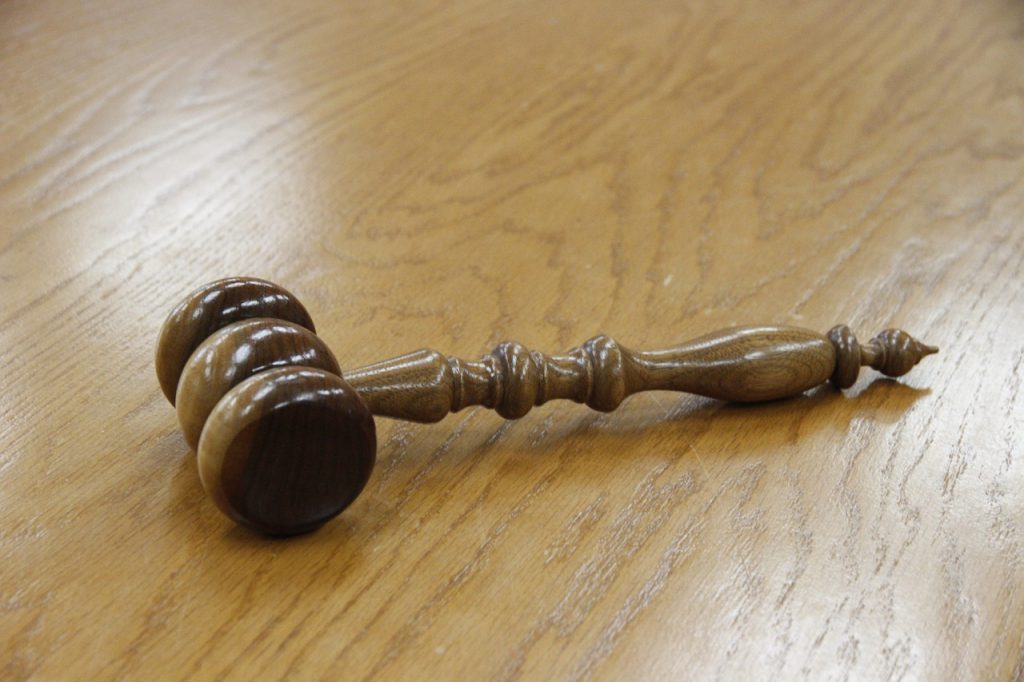
The regular meeting of Palmyra’s Borough Council on Monday, April 15, came to a contentious conclusion following public comment where it was revealed packets of confidential information pertaining to an ongoing ethics investigation involving Mayor Michelle Arnold’s dual role as mayor and Realtor had been mailed anonymously to members of the public.
On April 4, the Burlington County Times reported that a preliminary ethics investigation conducted by Attorney Daniel Rosenberg (no relation to Borough Attorney Ted Rosenberg) had failed to conclude whether Arnold had acted unethically, but stated there was “good cause” to continue the investigation.
The report points to several instances when Arnold’s dual roles allegedly came into conflict, including recent concerns voiced by borough construction office employees who claimed they felt pressured to cater to the mayor’s clients.
Two more instances mentioned in the report include the mayor setting up a table for her real estate business between the borough building and the police station during last year’s Palmyra Day Festival and a discovery made during National Night Out that backpacks given away to children by the borough had been stuffed with flyers for Arnold’s business.
At the time of the report, the investigation had been passed on to the local finance board.
At the meeting, Borough Administrator John Gural declined a request for comment about the current state of the investigation.
During the public comment portion of the meeting, resident Jerry Furrer addressed the council holding a thick manila envelope he claimed contained information about the allegations against Arnold
“I just wanted to say if anybody wants to see some documents, I got some in the mail about allegations, and I’m really surprised,” said Furrer. “It’s shameful.”
Asked for clarification by Borough Attorney Ted Rosenberg, Furrer replied he had received the packet in the mail and wasn’t sure who sent it as there was no return address.
According to Furrer, he has no idea why the packet was sent to him other than the fact that his name and business are mentioned within. He would not comment on the nature of his involvement.
After addressing council, Furrer turned the packet of documents over to Rosenberg.
“In this packet are documents which should have been kept private,” said Rosenberg upon inspection of the envelope’s contents. “One is my letter to the mayor, which was not intended for public dissemination.”
Gural said that the letter was a public document, prompting Rosenberg to reword his previous statement to say the letter was not intended for public dissemination at the time he wrote it.
“The second document looks like an initial investigative report, which was written by Daniel M. Rosenberg and Associates, and on the first page it says on there only ‘Privileged and Confidential,’ so how this gentleman got that…” Rosenberg trailed off.
The attorney added the envelope also contained what appeared to be complaints.
The remaining contents of the envelope were not revealed by Rosenberg and were not discussed at the meeting.
Furrer declined to comment on the rest of the documents, stating only that he was “shocked” by the contents of the envelope.
Arnold inquired as to who would have had access to the “privileged and confidential information.”
“I don’t know everyone. I know that the report was disseminated to Your Honor and to the members of the governing body,” replied Rosenberg.
Gural noted that earlier in the day he had received what he believed to be identical copies of the packet in question from two other members of the public, not present at the meeting, which he presented to the governing body.
“What do we do now?” asked Arnold. “What kind of investigation will there be now to find out who produced those documents and sent them and violated their duty to confidentiality and privilege?”
No members of council offered a suggestion, replying only to say there is no way to know without any indication of where the packets were mailed from.
“Ironic isn’t it? That what I am being accused of, and allegations, this is clearly a violation of confidentiality and privilege and yet the six of you (council members) are sitting here, and I’ve asked what you are going to do about it and how you are going to investigate this and how you are going to put this to rest, not one of you has spoken up,” said Arnold.
“What do you want us to do? We already proved there’s no information there that we can follow,” said Council President Timothy Howard. “Here’s my thing, if we have an investigation going on, it wouldn’t benefit us by putting information out there if we’re waiting for information to come back from the committee who’s investigating this thing for us.”
Despite the council’s reticence, Arnold held to a belief that someone present at the meeting had distributed the confidential information.
“There is a finite group of people who had that information and one of you sent it out, so somebody is responsible,” said Arnold.
Rosenberg pointed out that the group of individuals with access to the information in question extended beyond the council chambers, offering the office of Daniel Rosenberg as an example.









